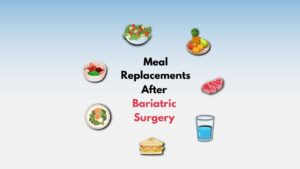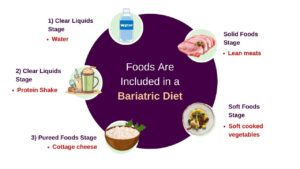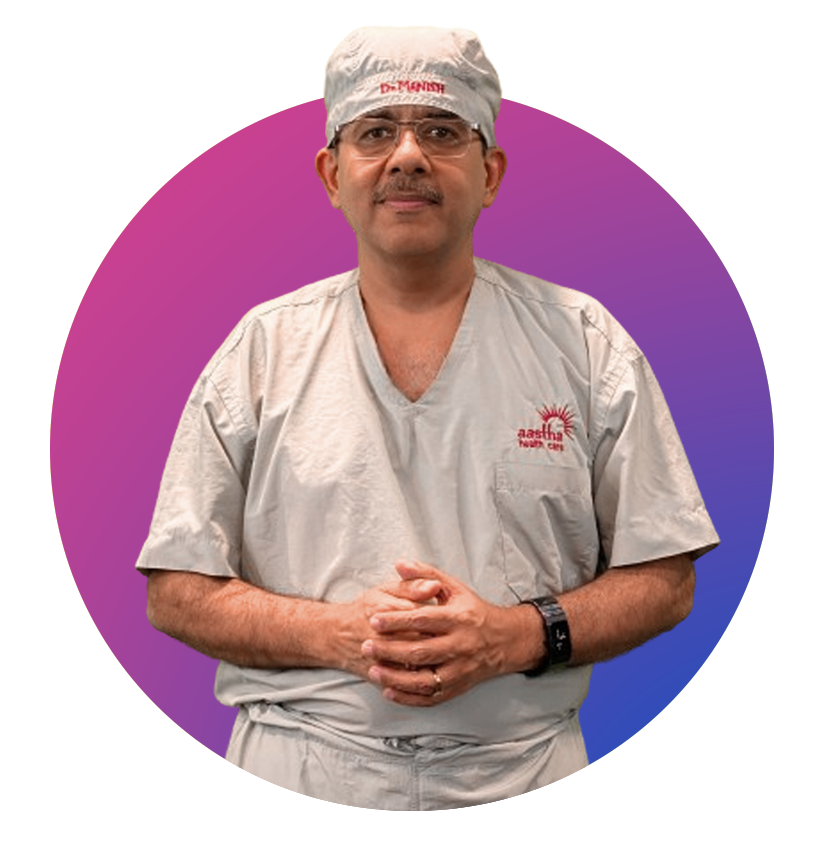
Why Carbs Are Still Important
After weight loss surgery, many patients may have misconceptions about carbohydrate foods and believe that they need to avoid them entirely. However, understanding the role of carbohydrates and making informed choices can help patients create balanced and healthy meals that support their post-surgery journey.
What are Carbohydrates?
Carbohydrates, sometimes known as carbohydrates, are sugar molecules. Carbohydrates, together with proteins and lipids, are one of the three basic nutrients present in meals and beverages.
Carbohydrates are truly necessary for our survival. Carbohydrates, along with protein and fat, are macronutrients that our bodies use as fuel. Carbohydrates are the preferred fuel kind. The body pays a high price for using protein and fat for energy since you are breaking down bodily tissue (you’re eating yourself!).
Our minds can only run on carbs! Carbohydrates, like the other macronutrients, are nutrients that our bodies cannot produce and must be obtained through diet.

Type of carbohydrates present in food are:
Simple Carbohydrates:
Simple carbohydrates are commonly referred to as “simple sugars.” The name stems from the fact that their sugar molecules are small, requiring minimal digestion and breakdown before they can be readily absorbed into our bloodstream. Consequently, these sugars have a more rapid and pronounced effect on blood sugar levels. Examples of simple carbohydrates include glucose, fructose, galactose, maltose, sucrose, and lactose.
Simple sugar-containing foods include:Dairy and milk products.
Some fruits and vegetables.
Flour and sugar goods that have been processed, such as candy, soda, snack cakes, pies, cookies, and sugary beverages.
Simple sugars are sometimes regarded as “bad” carbohydrates, owing to the fact that processed carbs found in unhealthy junk foods have little to no nutritious benefit. However, dairy products, fruits, and vegetables are excellent providers of critical vitamins, minerals, and fiber, all of which contribute considerably to our general health.
Complex Carbohydrates
Complex carbohydrates consist of starches and fiber and are characterized by their larger molecule size, requiring more time for digestion and utilization.
Foods rich in complex carbohydrates include whole grains (such as brown rice, quinoa, oats, and whole wheat), whole fruits (like apples, bananas, and berries), whole vegetables (such as broccoli, sweet potatoes, and spinach), and legumes like beans and lentils.
Incorporating these foods into your diet can help you feel fuller for longer periods due to their slower digestion rate. As a result, they provide a more sustained and steady release of energy compared to foods containing simple sugars.
Furthermore, complex carbohydrates tend to have a lower glycemic index, meaning they have a slower impact on blood sugar levels. This makes them particularly beneficial for individuals with diabetes or those looking to maintain stable energy levels throughout the day.
By including foods rich in complex carbohydrates in your meals, you can ensure a well-balanced and nutritious diet, supporting your overall health and well-being.
Amount of Carbohydrate you should eat after bariatric surgery
After bariatric surgery, your portion sizes will be significantly smaller than what you may have been accustomed to before the surgery. Assume a plate, in that plate ¼ portion of the plate, should be of carbohydrates. All carbohydrates, regardless of their source, are eventually broken down into sugar (glucose) in our bodies. Glucose serves as the primary fuel that circulates through our bloodstream and provides energy for our cells and tissues. This process is crucial for maintaining our body’s energy levels and overall functioning.
Indeed, the Recommended Daily Allowance (RDA) for carbohydrates is approximately 130 grams per day. It is essential to maintain an adequate carbohydrate intake as a low-carb diet can lead to the breakdown of protein for energy. In weight loss surgery patients, the emphasis is placed on consuming sufficient protein to spare muscle tissue.
A very low-carb diet, like the ketogenic diet, may potentially trigger the loss of muscle protein, which goes against the goal of preserving muscle mass after weight loss surgery. Therefore, it’s crucial to strike a balance in the post-surgery diet by ensuring an appropriate carbohydrate intake to support overall health and prevent muscle loss.
Problems With Low Carbohydrate Consumption:
After undergoing bariatric surgery, individuals may face several challenges if they adopt a low-carbohydrate diet. The surgery alters the stomach’s size and nutrient absorption, especially in gastric bypass procedures. Restricting carbohydrate intake can lead to nutritional deficiencies, as essential nutrients are abundant in carbohydrate-rich foods such as fruits, vegetables, and whole grains.
Moreover, low-carb diets may induce ketosis, where the body breaks down fat for energy. While this is generally safe, extreme ketosis can result in ketoacidosis, a potentially life-threatening condition. Additionally, inadequate carbohydrates can cause malnutrition, low energy levels, constipation, and muscle loss.
Sustaining very low-carb diets over the long term can be challenging, as individuals may feel deprived and restricted in their food choices. To address these issues, post-bariatric surgery patients should work closely with registered dietitians or nutritionists to develop personalized, balanced eating plans that ensure sufficient nutrient intake while supporting weight loss and overall health. Striking the right balance in their diet is crucial for achieving successful outcomes after bariatric surgery.
Therefore it is recommended to have your whole meal which includes carbohydrates, proteins, healthy fats, and dietary fiber. In case you are suffering from any difficulty in consuming adequate nutrition you should consult your bariatric dietitian. At Aastha Bariatrics, we provide exceptional care to our patients and mentor them throughout the weight loss process. At our center, we value every patient’s life, so we never compromise on quality. Dr. Manish Motwani is one of the best bariatric surgeons in India, with 26 years of experience in Metabolic and Laparoscopic Surgeries. Over the last 15 years, patients have reported no difficulties following surgery.

Harshalee
Bariatric Dietician & Content Writer








